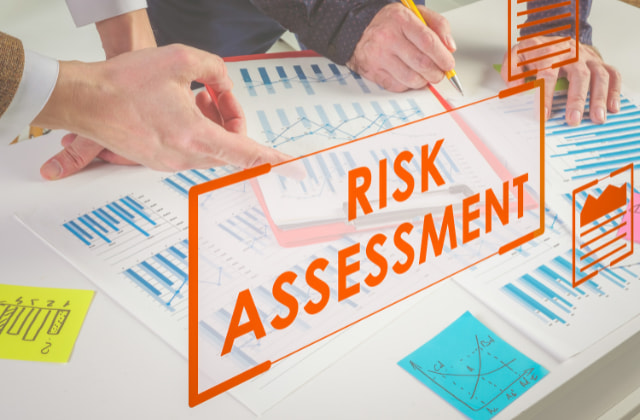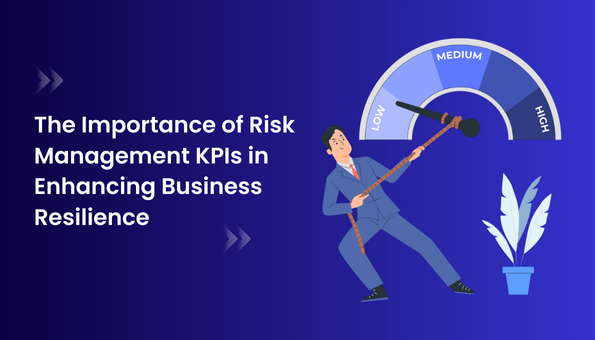Exploring the Increasing Importance of Risk Management in Business Strategy
Exploring the Increasing Importance of Risk Management in Business Strategy
Blog Article
Checking out the Importance of Risk Management for Effective Decision-Making Strategies
In the complex globe of business, Risk Management emerges as an essential factor in the decision-making process. The capability to identify possible dangers and chances, and strategize as necessary, can lead to the distinction in between success and failing.
Recognizing the Concept of Risk Management
Risk Management, a crucial part in decision-making, is commonly misinterpreted or oversimplified. Risk Management involves disciplined and organized strategies, using information and informative evaluations. From monetary uncertainties, legal liabilities, calculated Management errors, to crashes and natural disasters, it attends to various dangers - importance of risk management.
The Duty of Risk Management in Decision-Making Processes
In the world of strategic preparation and company procedures, Risk Management plays an important duty in decision-making processes. It helps in determining possible threats and uncertainties that can affect the achievement of company goals. By mapping these risks, companies can formulate methods to minimize their influence, guaranteeing organization continuity and stability. Risk Management thus ends up being an essential device in decision-making, helping leaders to make informed choices based on a detailed understanding of the threats entailed. It motivates a proactive approach, enabling organizations to prepare and anticipate for possible future scenarios. This substantially decreases the probability of unfavorable repercussions, promoting much more effective and efficient decision-making methods. As a result, Risk Management offers as a vital component in the decision-making processes of any company.

Just How Risk Management Boosts Strategic Planning
In the context of strategic preparation, Risk Management plays an essential function. Initiating with the recognition of potential threats, it further encompasses the execution of Risk reduction procedures. The role of Risk Management is not fixed however dynamic, as it demands consistent tracking and adjusting of strategies.
Determining Possible Risks

Carrying Out Risk Reduction
Having actually developed the relevance of identifying prospective dangers, the next step is to check out Risk mitigation. This process involves developing and implementing approaches to manage determined risks efficiently. It is an essential aspect of strategic planning as it boosts decision-making by decreasing prospective adverse outcomes. Risk reduction strategies can range from Risk evasion, Risk transfer, to run the risk of decrease. Each method must be customized to the specific Risk, considering its possible effect and the organization's Risk resistance. Furthermore, effective Risk reduction needs a deep understanding of the Risk landscape and the prospective effect of each Risk. This understanding allows organizations to focus on dangers and allocate sources successfully, making sure that the most substantial risks are attended to first.
Surveillance and Changing Strategies
Though Risk mitigation is a crucial action in critical preparation, constant tracking and adjustment this article of these strategies is just as essential. It also provides a chance to evaluate the success of the Risk Management steps, enabling adjustments to be made where necessary, further boosting calculated planning. Monitoring and readjusting Risk Management methods is a vital component for enhancing a company's strength and calculated preparation.
Case Studies: Successful Risk Management and Decision-Making
In the globe of business and financing, effective Risk Management and decision-making frequently offer as the columns of prosperous business. These cases highlight the value of sharp Risk Management in decision-making procedures. These cases highlight the critical duty of Risk Management in critical decision-making.
Tools and Methods for Reliable Risk Management
Browsing the intricate labyrinth of Risk Management calls for the best collection of devices and techniques. These tools, such as Risk registers and warmth maps, help in identifying and evaluating possible risks. Techniques include both measurable approaches, like sensitivity analysis, and qualitative techniques, such as SWOT evaluation. These help in prioritizing dangers based upon their possible impact and likelihood. Risk feedback strategies, an essential element of Risk Management, include accepting, preventing, moving, or mitigating threats. Surveillance and controlling risks, through routine audits and reviews, ensure that the methods stay reliable. With these techniques and tools, decision-makers can navigate the facility landscape of Risk Management, thereby assisting in educated and reliable decision-making.
Future Trends in Risk Management and Decision-Making Techniques
As we explore the vast landscape of Risk Management, it becomes noticeable that the techniques and devices utilized today will proceed to advance. Future patterns direct in the direction of an increased reliance on technology, with fabricated knowledge and device learning playing substantial functions. These technologies will certainly allow organizations to forecast possible dangers with better accuracy content and make even more educated decisions. Furthermore, there will be an expanding emphasis on strength, not simply in managing threats but additionally in getting better from damaging circumstances. Last but not least, the idea of Risk society, where every member of an organization knows and involved in Risk Management, will certainly obtain more prominence. These patterns declare an even more proactive and comprehensive technique in the direction of Risk Management and decision-making.
Final thought

Risk Management therefore ends up being an important device in decision-making, aiding leaders to make educated choices based on a comprehensive understanding of the risks included. Risk reduction techniques can range from Risk avoidance, Risk transfer, to run the risk of reduction (importance of risk management). Reliable Risk reduction needs a deep understanding of the Risk landscape and the prospective effect of each Risk. Risk response approaches, a crucial component of Risk Management, involve approving, avoiding, moving, or mitigating threats. The idea of Risk society, where every member of a company is conscious and involved in Risk Management, will certainly gain more importance
Report this page